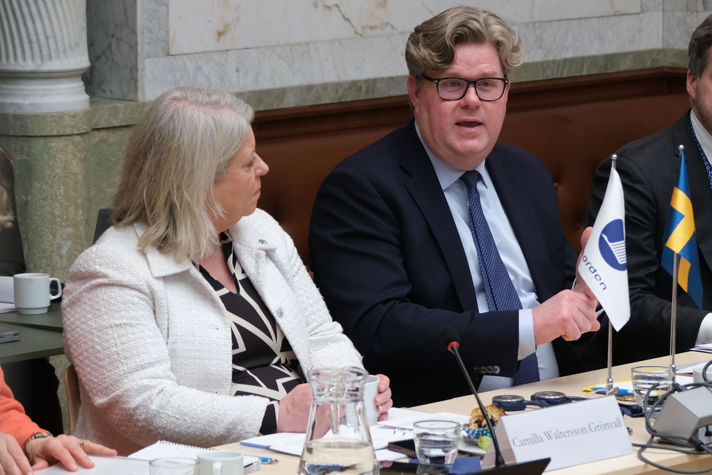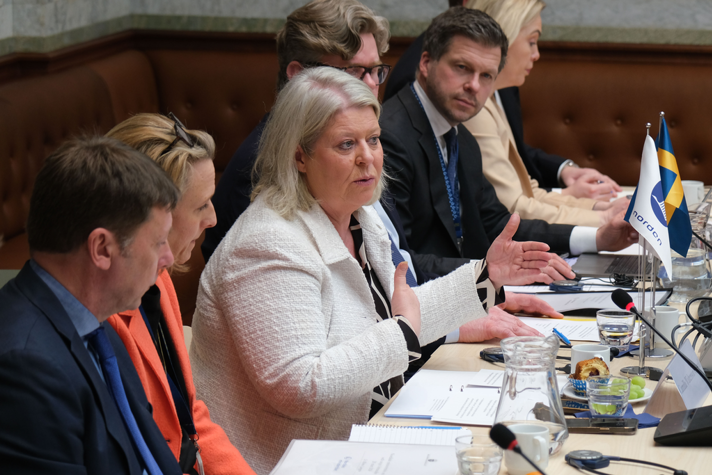Nordic ministerial meeting on children and young people involved in crime
Published
More and more children and young people are becoming involved in criminal networks, and stopping recruitment requires early interventions, knowledge-based methods and collaboration. Minister for Justice Gunnar Strömmer and Minister for Social Services Camilla Waltersson Grönvall therefore hosted Nordic countries, including the autonomous regions, for a discussion about children and young people who are, or risk being, involved in crime. The meeting was held within the framework of the ongoing Swedish Presidency of the Nordic Council of Ministers.
More and more children and young people are becoming involved in criminal networks. In Sweden, we are seeing a serious development in which younger children are being drawn into criminal networks and, in some cases, committing serious crimes. This is stated in a new report by the Swedish National Council for Crime Prevention. In the last 10 years, the number of children suspected of transferring drugs has gradually increased. The number of children between 15 and 17 years of age suspected of firearms offences has multiplied, and the number of children between 15 and 20 years of age suspected of murder has multiplied significantly. Indebtedness, threats and violence are used to keep children and young people from leaving criminal networks.
“If we are serious about restoring safety and security in society, we must give children and young people a safe upbringing and a bright future. We must stop recruitment to criminal gangs, and all positive forces need to cooperate now as we work to reverse this negative trend. This is needed both domestically and internationally, including with our Nordic neighbours,” says Minister for Social Services Camilla Waltersson Grönvall.
“Organised crime is a cross-border issue, which is why cooperation with other countries is absolutely crucial. We’re now bringing together our Nordic neighbours to share our experiences and discuss how we can substantially step up crime prevention efforts through collaboration, early interventions and knowledge-based methods. We must do all we can to break the trend of children and young people being recruited into gangs,” says Minister for Justice Gunnar Strömmer.
Methods for preventing crime were discussed
Stopping new recruitment to criminal networks requires collaboration, early interventions and knowledge-based methods. The Swedish Agency for Health Technology Assessment and Assessment of Social Services has mapped the social initiatives and methods that are recommended in the Nordic countries for preventing or averting continued youth crime. These include initiatives within social services’ operations and in other sectors that work with social crime prevention, such as the police and schools. Two methods that are used for the purpose of counteracting norm-breaking or criminal behaviour are the Group Violence Intervention and Functional Family Therapy. Representatives of two organisations that use these methods talked about their work at the meeting.
The Nordic countries have a lot in common, and our social systems have many similarities. The meeting therefore concluded with a roundtable discussion in which the participating ministers shared their reflections and experiences.



 X
X